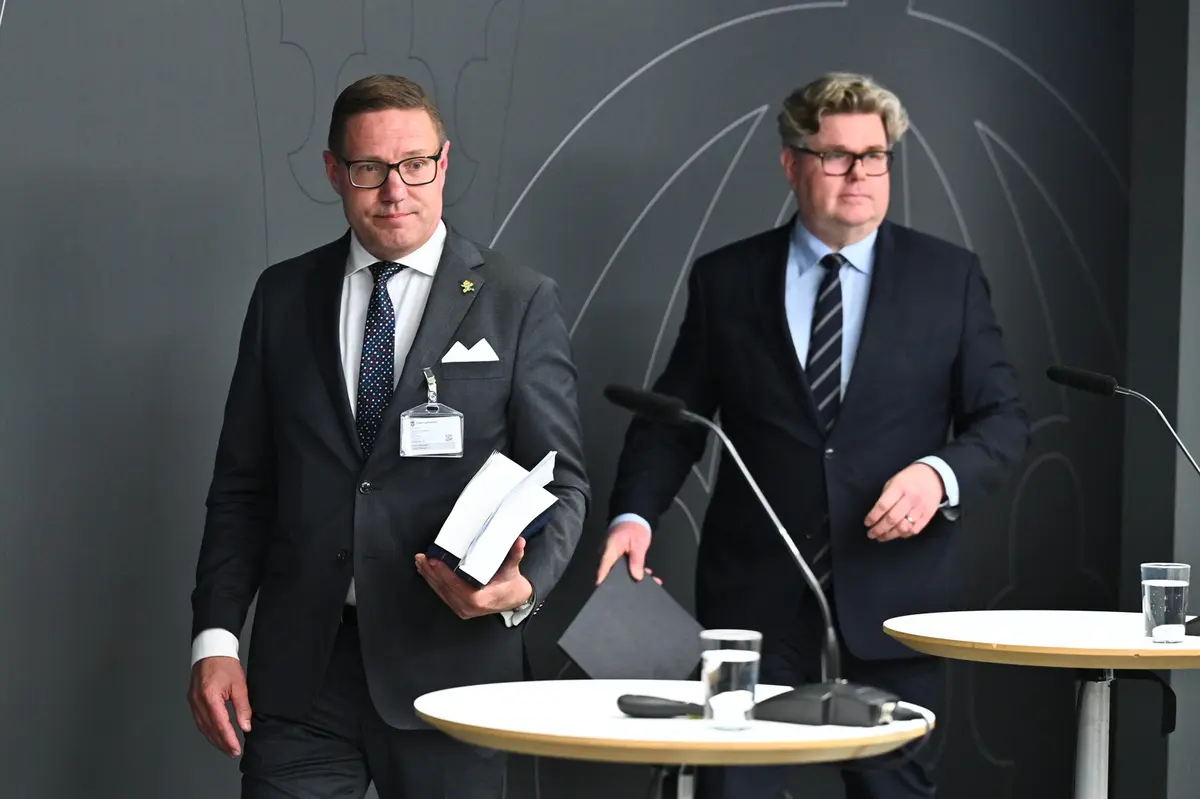The Swedish Armed Forces' opportunities to provide support to the police are currently strongly limited. In principle, the defense can only support the police in situations that may involve violence or force against individuals in cases of terrorist crimes.
The current situation does not match the current threat picture, says the investigator Rikard Jermsten.
The threat picture has become increasingly complex and the line between military and non-military threats is harder to draw today.
Jermsten proposes a new law on the Swedish Armed Forces' assistance to the police.
Besides in cases of terrorist crimes, the police should be able to ask for help in other serious crimes, for example if there is a risk of many people's lives or health, if it is a serious disruption of an important societal function or in cases of serious threat to Sweden's security.
Does not exclude combat aircraft
However, we have not seen any increased need for support in situations that demand physical violence to combat organized crime, says Jermsten.
He emphasizes that the view on when the military can be called in should still be restrictive. The basic rule is that it should only happen in very serious cases, when the police's own resources are insufficient and always under police leadership.
The government must also, as a general rule, have given their consent to the police asking for support from the defense.
Jermsten does not see any events in Swedish experience where it would have been relevant to call in the defense.
However, a more extreme situation like Utøya or 9/11, those situations can occur, says he.
On the question of what weapons the military is allowed to use to support the police, he answers:
They should use the armament that is deemed suitable based on the given situation. I do not exclude that it could be combat aircraft in a completely extreme situation, but it is purely hypothetical.
New "reserve police"
The investigation also proposes that Sweden should establish a modernized form of reserve police, a so-called "reserve police", which can be called in during heightened alert and war.
The reserve police existed previously in Sweden but was abolished in 2012.
Reserve police officers should, according to the investigation, be former police officers and police students at the end of their education, who will be registered for civilian duty. Reserve police officers should be able to do everything that regular police officers can do, with the limitation that the tasks should be "suitable".
The number of reserve police officers is estimated to be approximately 6,000.
The investigator's proposal is now being sent out for review.
The Swedish Armed Forces will support the police in more cases (new law on January 1, 2027).
A new "reserve police" that can be called in during heightened alert and war (new regulation on October 1, 2026).
Secure the police's helicopter transports: The police should be able to borrow helicopters, and a joint civilian helicopter fleet will be investigated.
Police officers should no longer be classified as "combatants" in war.
A new system for border surveillance in war (new law on January 1, 2027).






